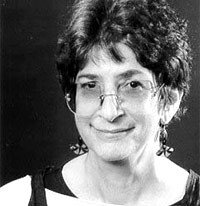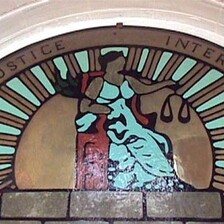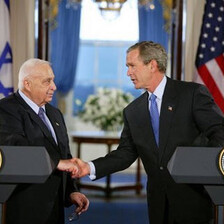The Electronic Intifada 19 March 2007

Tanya Reinhart
Why us? On the academic boycott
A boycott decision — like that passed by Britain’s Association of University Teachers to boycott two Israeli universities — naturally raises a hue and cry among Israelis. Why us? And why now just when negotiations with the Palestinians might be renewed?
It may be worthwhile, however, to consider how the world perceives us. In July 2004, the International Court of Justice in The Hague ruled that Israel must immediately dismantle those parts of the wall that were built on Palestinian lands. We disregarded the ruling. We are turning the West Bank into a prison for Palestinians, as we have already done in Gaza in the course of 38 years of occupation, every one of which is a violation of UN resolutions. Since 1993 we have been engaged in negotiations with the Palestinians, and in the meantime, we have continued expanding settlements. In its judgement, the Court recommended to the UN that sanctions be imposed on Israel if its ruling is not obeyed. The Israeli reply: no need to worry! As long as the United States is behind us, the UN will do nothing.
In the eyes of the world, the question is what can be done when the relevant institutions do not succeed in enforcing international law? The boycott model is drawn from the past: South Africa also disregarded UN resolutions. At that time as well, the UN (under pressure from the United States), was reluctant to impose immediate sanctions. The South African boycott began as a grass roots movement initiated by individuals and independent organizations. It grew slowly but steadily until it finally became an absolute boycott of products, sport, culture, academia and tourism. South Africa was gradually forced to abrogate apartheid.
The international community is beginning to apply the same model to Israel in all domains, from the Caterpillar bulldozers that demolish Palestinian homes, to sports and culture. In the eyes of the international community, the relevant question is whether the Israeli Academy is entitled, on the basis of its actions, to be exempt from this general boycott. Many in the Israeli Academy oppose the occupation as individuals. But in practice, no Israeli university senate has ever passed a resolution condemning, for example, the closure of Palestinian universities. Even now, when the wall cuts off students and lecturers from their universities, the protest of the Academy is not heard. The British boycott is selective — two universities were selected to signal to the Israeli Academy that it is being watched. But the Israeli Academy still has the option of removing itself from the cycle of passive support of the occupation.
One puzzle still remains: why only us? Why is Israel being singled out? What about Russia in Chechnya? What about the United States? What the United States did in Fallujah, no Israeli General has yet dared to try. Indeed, the logic behind a boycott of Israel dictates that a boycott of the great powers is fully justified. It is only because at the moment there is a greater likelihood of success in stopping a small state that Israel became the focus. Still, if an effort is made to save first the Palestinians and at least stop the wall, can we condemn that effort as unethical? Is it more ethical to refrain from trying to save anyone until it is possible to save everyone?
As usual, we believe that the solution lies in the realm of force. When the Valencia basketball team tried to boycott Israel in March 2004, and announced that it would not participate in the League Championship if it took place in Israel, the steamroller was set in motion. There were threats and there were mutterings about contracts, until Valencia was forced to relent and play here. Similarly, in the case of the academic boycott, the global Israeli lobby has tracked down, one by one, those who have declared support of the boycott, and have tried to make their lives miserable. The attempt by Haifa University to dismiss Dr Ilan Pappe in 2002 was not instigated because of the Teddy Katz affair, but because Dr Pappe openly supported the boycott and signed the original British petition calling for it.
It is possible that the bulldozer, which has come to symbolize Israel, will succeed in reversing the decision of the Association of University Teachers in England. But will this prevent researchers from boycotting us quietly, without involving the media? Perhaps it would be more worthwhile for the Israeli Academy to direct its anger at the government and demand that it finally put a stop to this wall.
This article first appeared in Yediot Aharonot on 13 April 2005 and was translated from Hebrew by Mark Marshall.
Highlighted articles by Tanya Reinhart published by EI:

